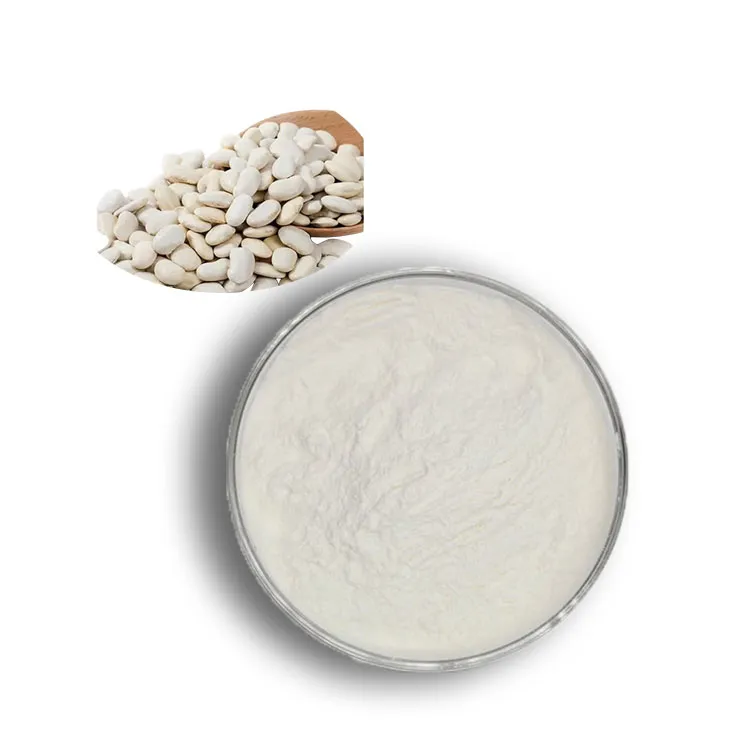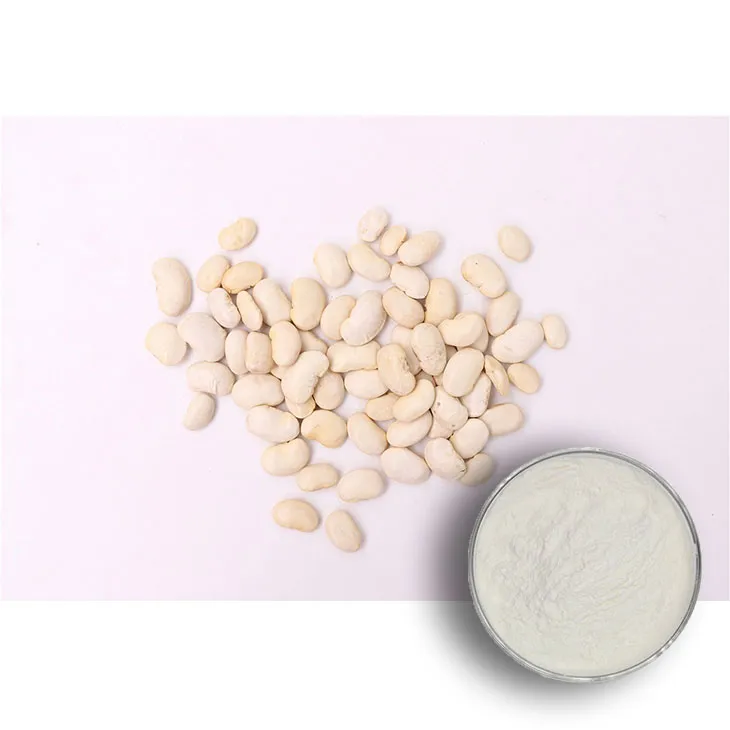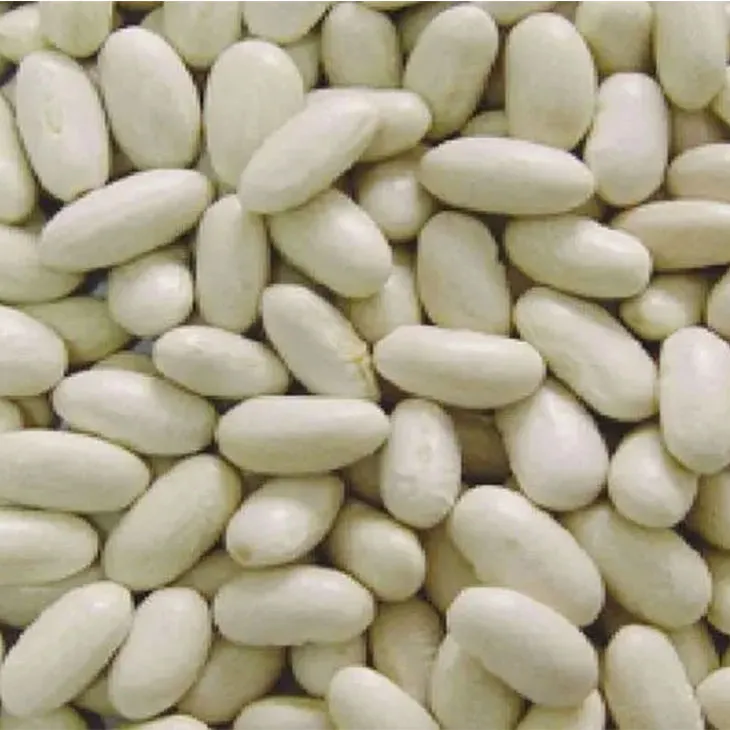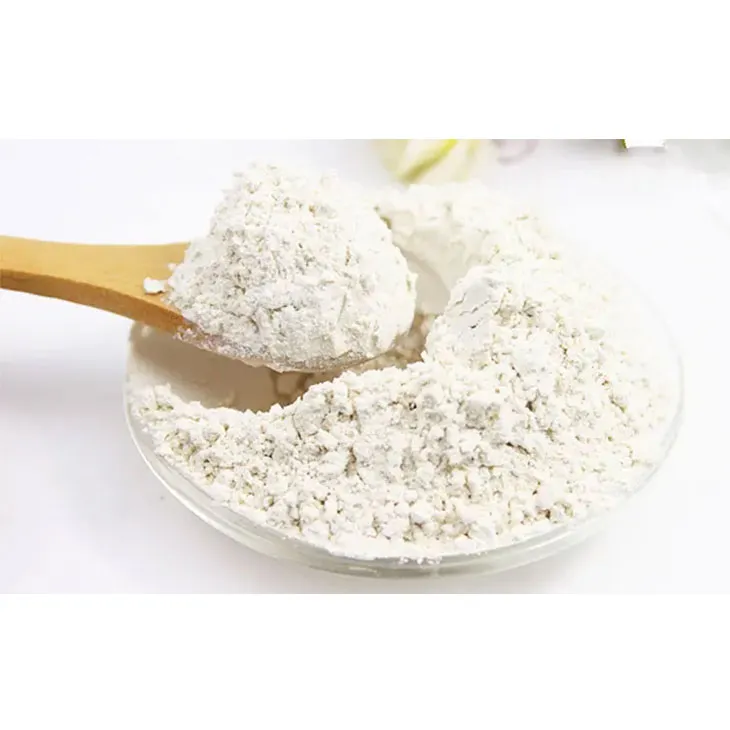- 0086-571-85302990
- sales@greenskybio.com
Kidney Bean Extract: Benefits and Consumption Guide
2024-11-12

1. Introduction to Kidney Bean Extract
Kidney Bean Extract is derived from the common kidney bean (Phaseolus vulgaris). This extract has been the focus of much research in recent years due to its potential health - enhancing properties. Kidney beans are a staple in many diets around the world, and their extract contains a variety of bioactive compounds that are thought to contribute to its beneficial effects.

2. Nutritional Components in Kidney Bean Extract
The kidney bean extract is rich in several important nutrients. One of the key components is protein. Kidney beans are a good source of plant - based protein, and the extract retains some of this protein content. This makes it a valuable addition for those looking to increase their protein intake, especially vegetarians and vegans.
It also contains dietary fiber. Fiber is essential for digestive health, helping to promote regular bowel movements and prevent constipation. The fiber in kidney bean extract can also contribute to a feeling of fullness, which may be beneficial for those trying to manage their weight.
Furthermore, kidney bean extract contains various vitamins and minerals, such as iron, potassium, and folate. Iron is important for the production of red blood cells, potassium is necessary for proper heart and muscle function, and folate is crucial for cell division and the prevention of certain birth defects.

3. Benefits of Kidney Bean Extract
3.1 Antioxidant Effects
Kidney bean extract contains antioxidants such as phenolic compounds. These antioxidants play a crucial role in protecting the body from oxidative stress. Oxidative stress occurs when there is an imbalance between the production of free radicals and the body's ability to neutralize them. Free radicals are unstable molecules that can damage cells, proteins, and DNA, leading to various health problems, including aging, heart disease, and cancer.
The antioxidants in kidney bean extract scavenge free radicals, thereby reducing oxidative damage. This can have a positive impact on overall health, helping to maintain the integrity of cells and tissues and potentially reducing the risk of chronic diseases.
3.2 Weight Management Support
As mentioned earlier, the fiber content in kidney bean extract can contribute to weight management. High - fiber foods tend to be more filling, which can help reduce overall calorie intake. Additionally, some studies suggest that certain compounds in kidney bean extract may affect metabolism, potentially increasing the rate at which the body burns calories.
Another way kidney bean extract may support weight management is through its effect on blood sugar levels. It may help regulate blood sugar, preventing spikes and crashes that can lead to increased hunger and overeating.
3.3 Heart Health Benefits
The potassium in kidney bean extract is beneficial for heart health. Adequate potassium intake helps to regulate blood pressure by counteracting the effects of sodium. High blood pressure is a major risk factor for heart disease, stroke, and other cardiovascular problems.
Moreover, the fiber and antioxidant content may also contribute to heart health. Fiber can help lower cholesterol levels by reducing the absorption of dietary cholesterol, while antioxidants protect the heart from oxidative damage.
3.4 Digestive Health Improvement
The fiber in kidney bean extract is excellent for digestive health. It adds bulk to the stool, making it easier to pass through the intestines. This can prevent constipation and promote a healthy digestive system.
Furthermore, some of the bioactive compounds in the extract may have prebiotic effects, promoting the growth of beneficial gut bacteria. A healthy gut microbiome is associated with improved digestion, immune function, and overall well - being.

4. Consumption Guide of Kidney Bean Extract
4.1 Dietary Sources
One way to consume kidney bean extract is through whole kidney beans. These can be cooked in a variety of ways, such as boiling, baking, or frying. However, when consuming whole kidney beans, it is important to ensure that they are cooked thoroughly, as raw or undercooked kidney beans contain toxins that can cause food poisoning.
Kidney bean extract is also available in supplement form. These supplements are typically standardized to contain a certain amount of the active compounds. When choosing a supplement, it is important to look for a reputable brand and check the label for ingredients and dosage instructions.
4.2 Dosage
The appropriate dosage of kidney bean extract can vary depending on the individual's health goals and needs. In general, when consuming kidney bean extract as a supplement, it is recommended to start with a low dose and gradually increase it if necessary. For most people, a daily dose of 500 - 1000 mg may be sufficient for general health benefits.
However, it is always best to consult a healthcare provider before starting any new supplement, especially if you have pre - existing health conditions or are taking medications. The healthcare provider can help determine the appropriate dosage based on your specific situation.
4.3 Precautions
Although kidney bean extract has many potential benefits, there are also some precautions to keep in mind. As mentioned earlier, raw or undercooked kidney beans should be avoided due to the presence of toxins.
Some people may be allergic to kidney beans or components in the extract. If you experience any allergic reactions, such as itching, swelling, or difficulty breathing, after consuming kidney bean extract, discontinue use immediately and seek medical attention.
Also, kidney bean extract may interact with certain medications. For example, it may affect the absorption or effectiveness of medications for diabetes or blood pressure. If you are taking any medications, it is important to inform your healthcare provider before using kidney bean extract supplements.

5. Conclusion
Kidney bean extract is a natural substance with a wide range of potential benefits, including antioxidant effects, weight management support, heart health benefits, and digestive health improvement. Whether consumed through whole kidney beans or in supplement form, it can be a valuable addition to a healthy diet. However, it is important to follow the appropriate consumption guide, including choosing high - quality sources, determining the correct dosage, and being aware of any precautions. By doing so, you can safely and effectively enjoy the benefits of kidney bean extract.
FAQ:
What are the main antioxidant components in kidney bean extract?
Kidney bean extract contains various components that contribute to its antioxidant properties. Some of the main ones may include phenolic compounds. These phenolic compounds can scavenge free radicals in the body, reducing oxidative stress and protecting cells from damage. However, the exact composition may vary depending on factors such as the variety of kidney beans and the extraction method used.
How does kidney bean extract support weight management?
Kidney bean extract may support weight management in several ways. It might contain substances that can affect metabolism. For example, it could potentially increase the body's ability to burn fat or reduce the absorption of certain nutrients like carbohydrates, which could lead to a reduction in calorie intake. Additionally, it may help with appetite control, making a person feel fuller for longer periods, thus reducing overall food consumption.
Is kidney bean extract safe for everyone to consume?
While kidney bean extract can have many potential benefits, it may not be safe for everyone. People with certain allergies, especially those allergic to kidney beans, should avoid it. Also, pregnant or breastfeeding women should consult a healthcare provider before consuming kidney bean extract, as there may be potential effects on the fetus or infant. Some individuals may also experience digestive discomfort or other adverse reactions, so it's important to start with a small amount and monitor for any negative symptoms.
How should kidney bean extract be consumed?
Kidney bean extract can be consumed in different forms. It may be available as a dietary supplement in capsule or powder form. If it is in powder form, it can be mixed with water, juice, or added to smoothies. However, it is important to follow the recommended dosage instructions provided on the product label. Do not exceed the recommended amount as this could lead to potential negative effects.
Can kidney bean extract interact with medications?
Yes, kidney bean extract may interact with certain medications. For example, if it affects the absorption or metabolism of nutrients, it could potentially interfere with medications that are also metabolized in a similar way. It is crucial for people taking medications, especially those for chronic conditions such as diabetes or heart disease, to consult their doctor or pharmacist before starting to consume kidney bean extract. This will help to avoid any unwanted drug - extract interactions that could affect the effectiveness of the medication or cause adverse effects.
Related literature
- The Nutritional and Functional Properties of Kidney Beans"
- "Antioxidant Activity of Kidney Bean Extracts: A Comprehensive Review"
- "Kidney Bean Extract and Its Role in Weight Management: Current Research"
- ▶ Hesperidin
- ▶ citrus bioflavonoids
- ▶ plant extract
- ▶ lycopene
- ▶ Diosmin
- ▶ Grape seed extract
- ▶ Sea buckthorn Juice Powder
- ▶ Beetroot powder
- ▶ Hops Extract
- ▶ Artichoke Extract
- ▶ Reishi mushroom extract
- ▶ Astaxanthin
- ▶ Green Tea Extract
- ▶ Curcumin Extract
- ▶ Horse Chestnut Extract
- ▶ Other Problems
- ▶ Boswellia Serrata Extract
- ▶ Resveratrol Extract
- ▶ Marigold Extract
- ▶ Grape Leaf Extract
- ▶ blog3
-
High purity olive leaf extract
2024-11-12
-
Lavender oil extraction method
2024-11-12
-
100% organic virgin sea buckthorn fruit oil
2024-11-12
-
Lotus leaf extract powder factory in China
2024-11-12
-
China aged garlic extract supplier
2024-11-12
-
Deer antler extract powder manufacturer
2024-11-12
-
Saw palmetto extract vs whole herb
2024-11-12
-
Coconut Water Powder
2024-11-12
-
Black Pepper Extract
2024-11-12
-
Motherwort Extract
2024-11-12
-
Tinospora cordifolia extract
2024-11-12
-
Chaste Berry Extract
2024-11-12
-
Rose Hip Extract
2024-11-12
-
Apricot Powder
2024-11-12
-
Citrus Aurantii Extract
2024-11-12
-
Sophora Japonica Flower Extract
2024-11-12
-
Green coffee bean Extract
2024-11-12





















